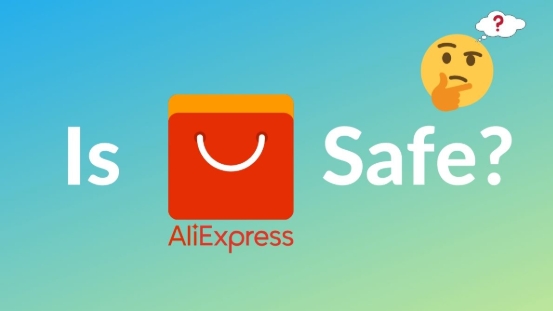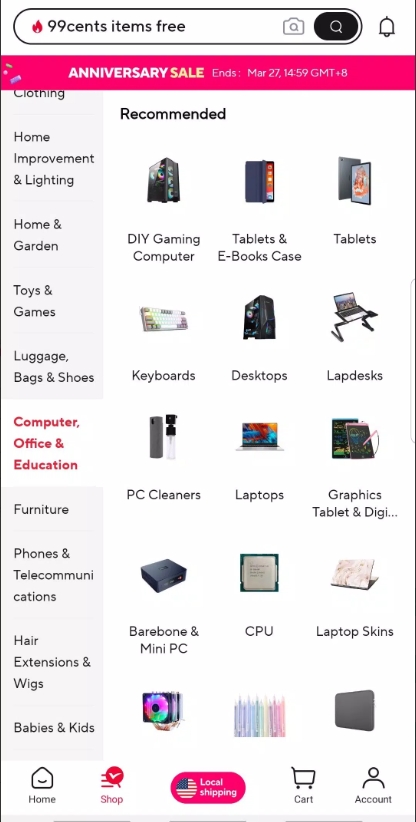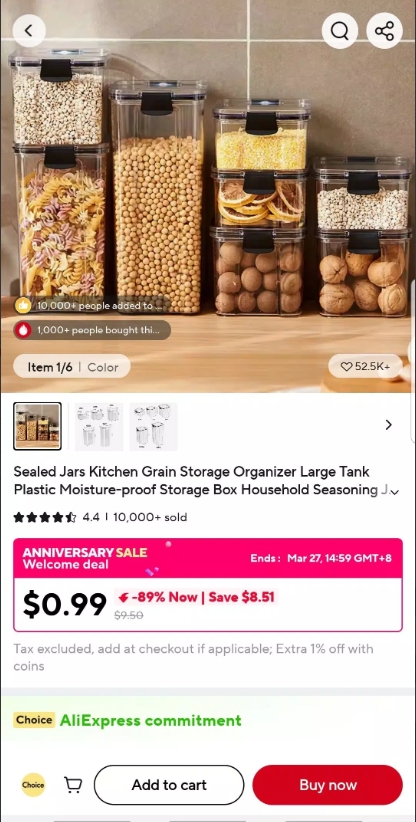When people type “is AliExpress safe” into Google, they’re usually asking about trustworthiness: whether sellers are legit, if payments are secure, and how reliable product quality is. With over 150 million active buyers, AliExpress is an e-commerce powerhouse—but it also raises valid safety concerns. In this detailed, over 2,000-word review, we’ll address all angles: seller legitimacy, payment security, product authenticity, platform safeguards, and shopping strategies to keep you protected.

I. Legitimacy and Seller Trust
A. Verifying Sellers
Look for seller ratings above 4.5 stars and hundreds of completed orders—that's a good signal of reliability .
Badges matter: “Top brand” and official store marks mean the seller is verified by AliExpress.
Read customer reviews carefully, preferably those with photos; watch out for fake reviews with vague or overly polished language .
B. Red Flags to Avoid
Listings with no reviews or orders are risky.
Unbelievable deals, vague stock images, or inconsistent item descriptions often mean poor quality or scams .
II. Payment and Financial Security
A. Secure Checkout
Your money stays in escrow until you confirm delivery.
Payment pages are protected by SSL encryption, and card transactions often use 3D Secure authentication .
B. Refunds and Chargebacks
Open a dispute before the protection time expires if you don’t receive the item or it's misrepresented.
If that fails, escalate or use a credit-card chargeback; many Reddit users report success by going this route .
III. Website and App Safety
A. Spotting Official Domains
Always shop via aliexpress.com and look for the lock icon to ensure a secure connection.
Be wary of misspelled URLs or phishing sites disguised as AliExpress.
B. App Safety
Install only from Google Play or App Store. Avoid third-party APKs—they may contain malware .
IV. Product Quality and Authenticity
A. Verifying Items
Compare specs and images with official brand listings.
If brand packaging or labels look off, it’s likely a counterfeit product .
B. Quality Control
Listings with comprehensive descriptions, sizing charts, and clarity tend to be more trustworthy.
Search for factory certifications and packaging photos in seller albums for reassurance.
V. Shipping, Delivery & Duties
A. Reliable Delivery
Choose shipping methods with tracking and consider premium options for faster and safer delivery .
Purchase shipping protection for higher-value items.
B. Customs Fees
Use AliExpress’s tax estimator tool during checkout to avoid surprises.
Understand your local import regulations: paying customs in advance often simplifies delivery.
VI. Customer Support & Dispute Resolution
A. Contacting Sellers and AliExpress
Use the in-app message system for transparency.
Wait up to the maximum shipping time; if no resolution, open a dispute before time runs out.
B. Buyer Protection
This program covers:
Refunds for non-arrival or incorrect items
Partial refunds if you keep a defective item
Document all evidence (chat logs, photos, order timelines) to support your case .
VII. Data Privacy and Account Security
A. Account Protection
Set a strong password and enable any available two-factor authentication.
Watch for unfamiliar logins via the account activity logs.
B. Data Practices
Using AliPay or credit cards is generally safe, thanks to escrow and encrypted payments.
Avoid storing cards if you're concerned about privacy, and delete data post-purchase if needed.
VIII. Ethical and Legal Considerations
A. Counterfeit Risks
AliExpress is often flagged for counterfeit goods by the USTR .
Report infringing listings through AliExpress’s IP complaint system.
B. Consumer Protections
Local laws (e.g. EU, US) may give you additional rights beyond AliExpress’s policies.
Always check if manufacturer warranties apply—they’re often not valid due to international shipping.
IX. Comparative Analysis & Safer Alternatives
A. Marketplace Comparison
From a safety standpoint:
Amazon and eBay tend to have tighter seller vetting.
AliExpress offers better value but requires more due diligence.
Wish/Temu often struggle with product authenticity and slower support.
B. Safe Shopping Tips
Stick to Top-Rated sellers and “AliExpress Choice” products.
Use coupon bundles and official promotions to offset inflation.
Use payment methods that offer chargeback protections like credit cards.
So, is AliExpress safe? The short answer is: Yes, if you shop smart. The platform itself is secure and legitimate, backed by Alibaba’s ecosystem, and offers strong buyer protection. But the key to staying safe lies with you—vet sellers carefully, track orders, document evidence, and use secure payment methods.
By combining platform safeguards with informed habits, you can enjoy AliExpress’s vast product range at unbeatable prices—without compromising security. Let me know if you'd like a checklist, country-specific advice, or help with a particular product category!











